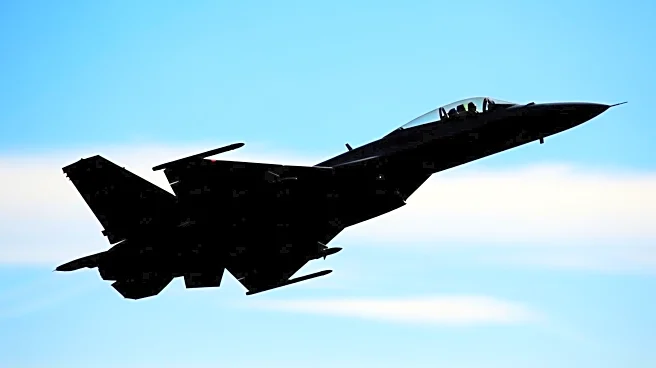What's Happening?
Estonia has requested formal consultations under Article 4 of NATO's founding treaty after three Russian fighter jets allegedly entered its airspace without authorization. The incident, which lasted 12 minutes, follows a similar event where Russian drones entered Polish airspace. Estonia's request for consultations aims to address the security threat posed by these violations. Article 4 allows NATO members to consult on threats to territorial integrity, political independence, or security, but does not automatically lead to military or diplomatic action. The consultations are intended to promote better coordination and understanding within the alliance regarding external threats.
Why It's Important?
The invocation of Article 4 by Estonia highlights ongoing tensions between NATO and Russia, particularly in Eastern Europe. These consultations are crucial for maintaining NATO's collective security and ensuring a unified response to potential threats. The situation underscores the importance of NATO's role in safeguarding member states against aggression, especially in light of Russia's actions in Ukraine and other neighboring countries. The consultations could lead to increased military presence or other defensive measures along NATO's eastern flank, impacting regional security dynamics and potentially escalating tensions with Russia.
What's Next?
NATO's North Atlantic Council will meet to discuss Estonia's request, which could lead to joint decisions or actions to address the security concerns. The outcome of these consultations may influence NATO's strategic posture in Eastern Europe, potentially resulting in increased military deployments or other measures to deter further Russian incursions. The situation may also prompt other NATO members to seek similar consultations, reflecting broader concerns about regional security and the need for a coordinated response to Russian activities.











